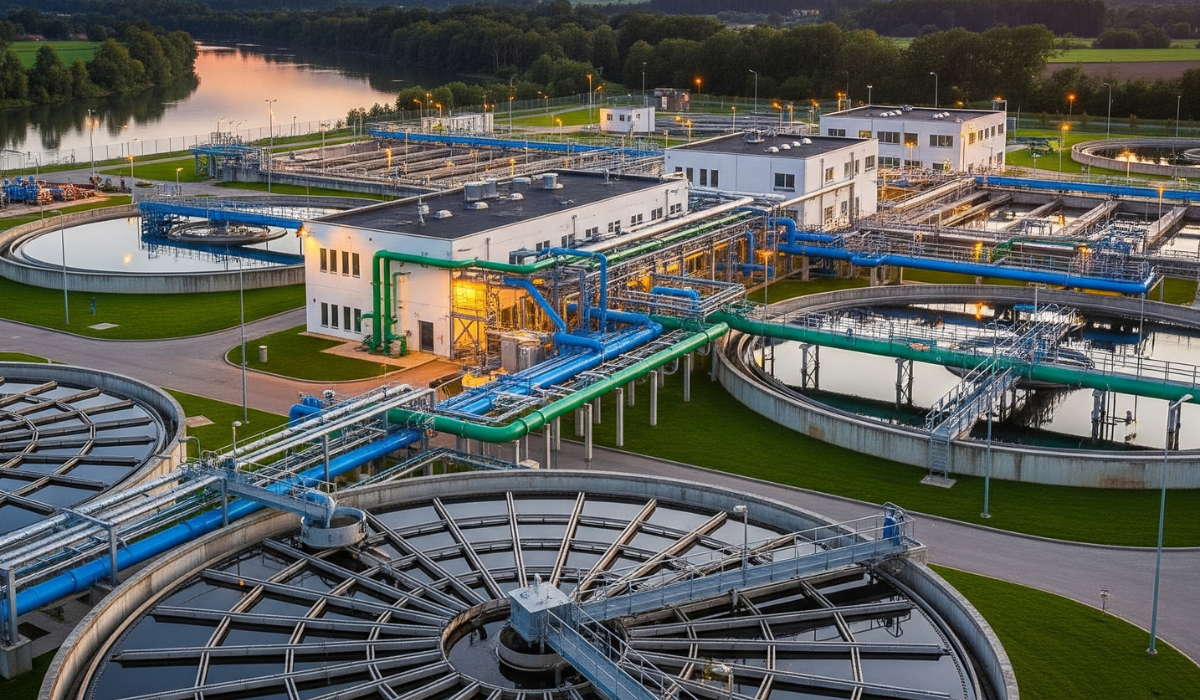Water Recycling: Turning Sewage into a Valuable Resource

Water is one of the most vital resources on Earth, yet billions of liters of wastewater are released every day without proper treatment. With population growth, industrialization, and climate change, freshwater scarcity has become a serious global problem. Recycling sewage water has emerged as a practical and sustainable solution to conserve natural resources, reduce water pollution, and ensure communities have enough water for the future.
By treating and reusing wastewater, industries, municipalities, and residential areas can save water, cut operational costs, and comply with environmental regulations. Sustainable water management not only ensures water availability but also protects rivers, lakes, and groundwater.
MKS Industrial Solutions, a leading sewage treatment plant manufacturer in India, provides advanced technologies and customized solutions to help industries and communities recycle wastewater efficiently, saving money and protecting the environment.
What is Water Recycling in Sewage Treatment?
Water recycling is the process of treating wastewater to remove dirt, contaminants, and harmful microorganisms so it can be safely reused. While it is not typically used for drinking, recycled sewage water serves many important purposes, such as:
-
Industrial processes
-
Agricultural irrigation
-
Landscaping and gardening
-
Municipal services (street cleaning, firefighting, etc.)
By recycling wastewater, cities and industries reduce the demand on freshwater sources, conserve resources, and promote sustainable water management—especially in regions struggling with water scarcity.
Key Benefits of Water Recycling
Conserving Freshwater
Recycling wastewater reduces the need to extract water from rivers, lakes, and underground sources. This helps industries, farms, and households consume less freshwater while protecting natural ecosystems.
Environmental Protection
Treated wastewater prevents harmful chemicals, pathogens, and excess nutrients from entering rivers and lakes. This reduces water pollution, safeguards aquatic life, and preserves biodiversity.
Sustainability
Water recycling creates a circular system where water is continuously cleaned and reused. This lowers stress on natural water bodies and ensures balance between human needs and the environment.
Economic Benefits
Industries and municipalities save money by reducing the cost of purchasing water and disposing of wastewater. Recycling also lowers energy use for pumping and transporting water from distant sources.
How Sewage Water Treatment Plants Enable Recycling
Sewage Treatment Plants (STPs) are the backbone of effective water recycling. They use a combination of physical, chemical, and biological processes to make wastewater safe for reuse.
Stages of STP Treatment
-
Primary Treatment – Removal of large solids, sediments, and floating materials using screens and sedimentation tanks.
-
Secondary Treatment – Microorganisms break down organic matter, reducing pollutants.
-
Tertiary Treatment – Advanced filtration, chemical treatment, and disinfection (UV/chlorination) to make water safe for industrial, agricultural, or residential reuse.
Advanced Technologies in Modern STPs
-
Membrane Bioreactors (MBR) – Combines biological treatment with membrane filtration, producing high-quality treated water.
-
Activated Sludge Process (ASP) – Uses microorganisms to break down pollutants, cost-effective for large applications.
-
Sequencing Batch Reactors (SBR) – Operates in cycles, suitable for variable sewage loads.
-
Moving Bed Biofilm Reactor (MBBR) – Uses biofilm carriers to treat sewage efficiently in compact spaces.
-
Automated Monitoring Systems – Real-time monitoring ensures treated water meets environmental standards.
Applications of Recycled Sewage Water
Industrial Use
Industries can reuse treated water for:
-
Cooling towers
-
Process water
-
Cleaning and washing operations
This reduces reliance on freshwater and lowers operational costs.
Agricultural Use
Recycled sewage water supports:
-
Irrigation of crops and plantations
-
Landscaping in parks and gardens
This ensures sustainable farming practices and conserves freshwater for drinking purposes.
Residential Use
Homes and residential complexes can use recycled water for:
-
Toilet flushing
-
Gardening and lawn maintenance
This reduces household water consumption and encourages responsible usage.
Environmental Benefits
Recycled water helps:
-
Reduce water pollution in rivers and lakes
-
Conserve freshwater resources
-
Support sustainable urban growth
Economic and Environmental Benefits of Water Recycling
-
Cost Savings–Lowers dependence on municipal water supplies.
-
Resource Conservation–Reduces freshwater consumption and pressure on natural sources.
-
Environmental Protection–Prevents pollution and protects aquatic ecosystems.
-
Regulatory Compliance–Helps industries follow environmental regulations and avoid penalties.
-
Energy Efficiency–Recycling water locally reduces energy needed for transport.
Choosing the Right Sewage Treatment Plant Manufacturer
Factors to Consider
-
Technology – Use of modern treatment methods ensures water quality.
-
Capacity – Plant size should match wastewater generation.
-
Customization – Different industries, municipalities, and residential setups need tailored solutions.
-
Maintenance Support – Regular servicing ensures long-term efficiency.
MKS Industrial Solutions provides eco-friendly and cost-effective STPs tailored to client needs. With advanced technologies and reliable support, they ensure maximum economic and environmental benefits while meeting regulatory standards.
Conclusion
Recycling sewage water through modern Sewage Treatment Plants (STPs) is no longer an option—it is a necessity for building a sustainable future. With rising water scarcity due to urbanization and climate change, wastewater recycling is one of the most effective solutions.
MKS Industrial Solutions, a trusted sewage water treatment plant manufacturer in India, offers advanced, customized, and efficient STPs. Their solutions help industries, municipalities, and residential complexes convert wastewater challenges into sustainable opportunities—ensuring cost savings, compliance, and long-term water security.
FAQ
What is a sewage treatment plant (STP)?
An STP treats wastewater to remove pollutants, making it safe for reuse or safe discharge.
Can recycled sewage water be used for drinking?
Generally, recycled water is used for non-drinking purposes. Drinking water requires additional treatment.
How much water can industries save using STPs?
Industries can save 30–60% of water, depending on plant size and reuse type.
What advanced technologies are used in modern STPs?
Modern STPs use MBR, ASP, SBR, MBBR, UV disinfection, and automated monitoring systems.
Why choose MKS Industrial Solutions as an STP manufacturer?
They provide customized, eco-friendly, and cost-effective STPs with advanced technology, ensuring efficient water recycling and regulatory compliance.
- Art
- Causes
- Crafts
- Dance
- Drinks
- Film
- Fitness
- Food
- Games
- Gardening
- Health
- Home
- Literature
- Music
- Networking
- Other
- Party
- Religion
- Shopping
- Sports
- Theater
- Wellness


